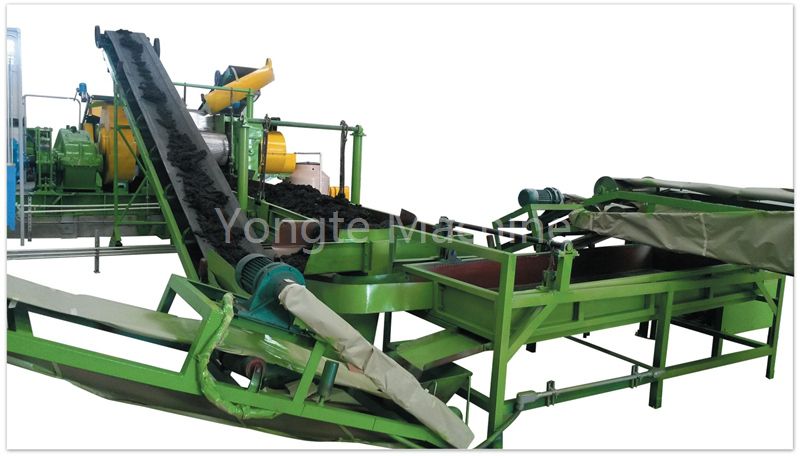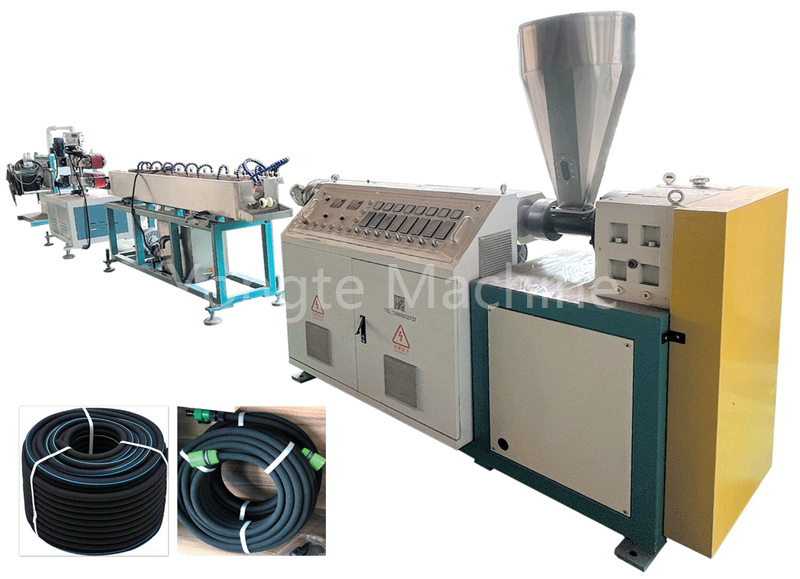Rubber seepage pipe production equipment, Yongte promotes rubber tire recycling and reuse
I, Description:
Yongte's Rubber irrigation pipe production machine can recycle and process waste tires into rubber infiltration pipes, also known as rubber nanotubes. After years of research and multiple trials, Yongte has developed a mature formula for producing nanorubber tubes. The rubber tubes produced have a uniformly distributed and well-connected network of nanoscale pores, ensuring efficient water permeation and effective filtration of impurities. These rubber tubes are widely used in agricultural irrigation systems, buried infiltration pipes, and pond oxygenation systems.
II, Advantages of rubber seepage water pipe:
1, High permeability efficiency: the nanoscale pores are uniform, the permeability rate is increased by 2-3 times, and it is stable for a long time
2, Strong anti-clogging ability: the nanoscale pores allow water molecules to pass through, while blocking larger particles such as silt and microorganisms (similar to the "molecular sieve" effect), reducing the risk of blockage.
3, Long service life: through the combination of rubber and PE materials, the service life of rubber seepage pipe can reach 10-15 years, aging resistance is significantly enhanced
4, Low installation and maintenance cost: simple installation, plug in the connector to use, can be bent and rolled up, not easy to block, maintenance free cycle is long, the comprehensive cost is reduced by 40%-60%
5, Good environmental performance: the rubber seepage pipe can be produced from recycled waste tires, and can be recycled for many times, which is very economical and environmentally friendly.


Yongte's rubber irrigation soaker hose making machine transforms waste tires into high-value-added seepage pipes through technological innovation, model reconstruction, and standard guidance. This not only solves environmental problems but also opens up a new track for low-cost irrigation systems.